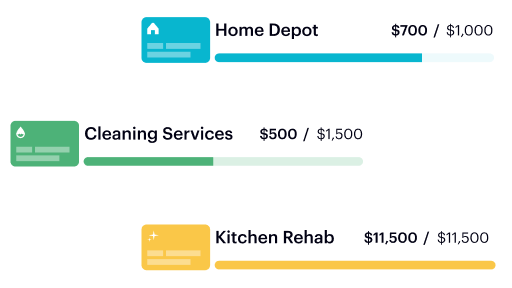Whether you’re thinking about buying your first investment property or twelfth, chances are you’re going to need a real estate loan. The money for your next rental property can come from several sources, each with pros and cons. In this article, we’ll explore the five best loan types when buying a rental property.
1. Conventional Mortgage
The first and most straightforward type of financing for a rental property is a conventional mortgage. This type of home loan is the same kind of financing you would get if you were buying a house to live in yourself.
Conventional mortgages include fixed-rate mortgages, adjustable-rate mortgages (ARMs), and offer some of the lowest interest rates and most flexible terms of any rental property financing. You might even be able to get an FHA loan if you’re buying a building with four or fewer units and are planning to occupy one of them yourself.
To qualify for a conventional mortgage, you’ll need to be able to prove you have the income to pay for it. Most lenders will want to see a debt-income ratio (DTI) under 45%, meaning your monthly debt payments can’t total more than 43% of your before-tax income. The wrinkle is that not all of your rental income will count toward your DTI. If you already have one or more rental properties, you’ll only get credit for their net income after expenses, including Principal, Interest, Tax, Insurance, and Association (PITIA).
For a property you’re planning to purchase, most lenders will only consider 75% of the rent as cash flow to count toward that property’s PITIA.
As you collect more rental properties, your likelihood of being approved for a conventional mortgage is greatly reduced. Even though you’re building net worth, you end up getting less credit for your rental income where conventional mortgages are concerned.
Conventional mortgages at a glance:
- Best for: Owner-occupied rental properties and investors with maximum 10 rental units (in other words, after 10 loans you need a commercial loan)
- Pros: Conventional mortgages have the lowest rates and most flexible terms out of any type of real estate investment loan you can get. If you meet certain criteria (like if you plan to live in the home for at least a year before renting it out), you can get financing with a low down payment and possibly qualify for an FHA loan.
Cons: Conventional loans have the strictest qualification criteria, requiring proof of income, good credit, and an acceptable DTI ratio that won’t include all your rental income – all of which limit the number of loans you can take out. Furthermore, most lenders will want a 20% down payment if the home will be rented out and require at least 30-45 days to close, making conventional loans less than ideal for investors who want to move quickly.
2. Portfolio Loans
When you don’t qualify for a conventional mortgage, another option to look at is a portfolio loan.
Unlike conventional mortgages, which are re-sold by the lender on the secondary market to Fannie Mae and Freddie Mac, portfolio loans stay with the lender.
As such, they’re not subject to the same underwriting criteria. Depending on the lender, you may be able to get away with a higher DTI, get approved with a lower credit score, or have a smaller down payment without having to pay for private mortgage insurance (PMI). Portfolio lenders can also offer financing that frees up more cash flow, like balloon loans.
The catch is that because the lender is taking on all of the risk themselves, they are going to want to make it worth their while. Portfolio loans come with higher interest rates than conventional mortgages, can be subject to prepayment penalties, and have higher origination fees. And If you’re not careful, you might end up with a loan that you’ll have trouble repaying.
Portfolio loans at a glance:
- Best for: Property investors who don’t qualify for a conventional mortgage
- Pros: Portfolio loans have easier qualification criteria as compared to conventional loans. You may be approved with a higher DTI ratio and lower down payment. As well, lenders may be willing to consider a higher percentage of your rental income for qualification. And because portfolio loans don’t need underwriting from Fannie Mae or Freddie Mac, they can close much more quickly than conventional mortgages can.
- Cons: Portfolio loans are considerably more expensive than conventional loans. If you take out a portfolio loan, expect to pay higher interest rates and origination fees.
3. Home Equity Loan
If you already own property and have some equity built up, you can access your equity to pay for a down payment on an investment property (or, if you have enough equity, an outright purchase).
There are a few ways to access your existing home equity:
- Home equity lines of credit (HELOCs) and home equity loans (HELs) allow you to borrow against the equity you have in a home and are sometimes called a second mortgage. Depending on the subject property and your DTI, you can borrow up to 80% of the appraised value. If you use a HELOC, you can make interest-only payments and use it as a revolving line of credit, similar to a credit card. A HELOC will have fixed amortization and repayment terms similar to a conventional mortgage.
- Cash-out refinancing is a way to access home equity by refinancing your existing mortgage and taking part of the mortgage as cash. Depending on the terms of your original mortgage, refinancing can also help you improve cash-flow. For example, if you had originally financed a property with a 20-year fixed-rate mortgage and refinanced with a 30-year mortgage, you could access cash and lower your monthly payments at the same time.
Whichever option you choose, the downside is that the loans can be costly to originate, making the actual cost of borrowing much higher than it appears.
Home equity takeout at a glance:
- Best for: Investors with considerable equity in other properties
- Pros: Home equity loans and lines of credit have very flexible repayment terms, which makes them a good choice when you need to improve cash-flow. HELOCs are also a good source of down payments for other loans, and are considered seasoned funds for conventional loans.
Cons: Leveraging one property to purchase another can add considerable complexity to your rental property finances. Home equity takeout can also have repercussions for your other sources of financing because repayments count against your DTI ratio for other loans
4. Private and Hard Money Loans
Even portfolio lenders have their limits. As you continue to grow your real estate portfolio, you might find that you’re no longer able to qualify for any type of conventional mortgage – even if you’re making good money from your rental business. At this point, you may want to consider using private lenders to fund your expansion.
Private lenders aren’t financial institutions, but investors or groups of investors who are willing to lend you money to purchase an investment property. Because they’re not bound by any underwriting policies, they may be willing to finance a purchase when you wouldn’t otherwise qualify for a loan. Private lenders are often willing to issue “hard money” loans, which are based on the value of the property being purchased (and used as collateral) and its cash flow (rental income) rather than your ability to make payments (meaning no income verification).
Because private loans are risky for the underwriters (the investors), interest rates are much higher than you would pay for a regular mortgage. Private lenders will also want you to have some skin in the game and demand a much higher down payment – 25-30% is typical.
Private money loans at a glance:
- Best for: Real estate investors who have exhausted conventional financing options or need loans that are based on the property value and cash flow instead of the investors personal income
- Pros: Private money is attractive because qualification isn’t based on your personal income, but rather the value and/or income of the home. Private money loans can also close very quickly when compared with other financing options because investors are free to set their own underwriting criteria.
Cons: Private money loans carry much higher interest rates than any mortgage you can get from a regular bank. Lenders will also require much larger down payments, while still holding the entire property as collateral, to protect their position.
5. Bonus Financing Option: Real Estate Limited Partnership
If you’re aggressively growing a portfolio of investment properties, you may find you have more access to better financing by entering into a partnership with one or more other investors.
Some investors will want to be active in the management of the property. This option could be beneficial if you already have multiple properties and want to expand your financial investment without more work. It’s also a suitable way to diversify your portfolio by buying property in different markets.
Other investors will want to be less active in the partnership or completely silent. A silent partner could be advantageous if you want to grow your portfolio of properties but can’t afford it on your own. There’s also a potential that you could structure such a partnership in a way that gives you “sweat equity” in the property.
For example, a partner may agree to pay for 50% of the purchase but give you 60% equity in the home in exchange for being the sole active manager of the property.
Partnerships have their downsides, too. Most notably, a downside is having to work with other people. Before you choose to enter into a partnership, make sure you trust the other people you’re partnering with and get legal advice to make sure you’re covering all your bases.
Real estate partnerships at a glance:
- Best for: Active real estate investors who want to quickly grow and diversify
- Pros: Partnering with other investors can help you grow and diversify your portfolio quickly while reducing the amount of capital you need to come up with directly. In a partnership, you also have the possibility to earn sweat equity which is a good way to grow wealth.
- Cons: When you share a property with partners, you also share your equity. Depending on the partnership, you may also give up control over when and how the property is sold or borrowed against. Partnerships can also be difficult on a personal level; many investors have come to regret locking themselves into a partnership with someone they can’t get along with.
Final Thoughts: Best Loan Types When Buying a Rental Property
There are many different types of loans you can get to buy rental property, each with its own advantages and disadvantages. The best loan for you is the most affordable one you can get approved for. Shop for rental property loans online to find the best deal for you, and watch your rental business grow.
Read More:
- What are the next steps to financing your next real estate investment? Read more about how to get a loan for a rental property.
- If you’re thinking about buying your first investment property, or not sure where to go next, take a look at our guide on how to get started with real estate investing.
- Have more questions beyond financing? This article has everything you need to know about being an independent landlord.
FAQs
There is no single best kind of rental property loan, as it depends on your personal situation. If you want to buy a rental property that you’ll be living in, you will probably want a conventional mortgage.
If you have financing but need money for a down payment, a home equity loan or cash-out refinance may make sense. If you’re a serious investor but no longer qualify for a mortgage, private money lending might be right for you.
Rental property loans do carry some risk, as the property is used as collateral. If you default on the loan, you could lose your rental property and all the money you have invested in it.
Before you take out a loan, make sure you can afford to pay it for several months with no rental income.
The requirements depend on the type of financing. Conventional mortgages require you to have a down payment of at least 5% (or 20% to avoid paying for PMI), a good credit score, and a DTI ratio under 43%.
At the same time, a private money lender might offer you a loan based on the property’s cash flow and a sizable down payment. You always have options, but they get more expensive as the approval criteria are relaxed.






